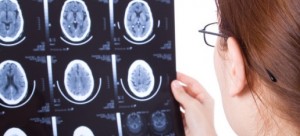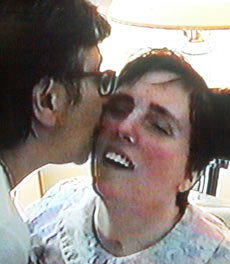 A study published in one of the most respected medical journals in the world this month has found that many “vegetative” patients are in fact fully conscious and aware.
A study published in one of the most respected medical journals in the world this month has found that many “vegetative” patients are in fact fully conscious and aware.
Experts at the University of Western Ontario conducted the experiment by applying an electroencephalogram (EEG) machine, a common mechanism for measuring brain waves, to a large group of unresponsive patients suffering from brain injuries.
The New York Times reported that, when researchers asked “vegetative” patients to imagine squeezing their hand into a fist or wiggling their toes on cue, they found the brain waves of about 20 percent of such patients responding in precisely the same way as healthy patients.
The research was anticipated by several smaller-scale studies and anecdotal evidence from experts showing the “vegetative” diagnosis to be unreliable at best. A lengthy article published in Discover Magazine in July followed the years of research by two leading experts who say they have witnessed such patients – some of whom had only a “shadow of fluid” in their skulls where the brain should have been – reconnect with the outside world again and again.
But the hurdles for advancing treatment may be higher than science alone can traverse. Dr. Joseph Giancino, director of rehabilitation neuropsychology at Spaulding Rehabilitation Hospital, told Discover of the level of prejudice he witnessed against the most helpless patients at one prestigious hospital where he presented his findings.
“The head of trauma thanks me and in a very jovial manner says, ‘In my day, the term for these patients was jellyfish.’ And he laughs and moves on,” he said. “What do you do with that?”
While one of the researchers of the Lancet study concluded that the experiment was “a strong sign of our inability to correctly diagnose people in the vegetative state,” some disability advocates say the diagnosis should be abandoned altogether, arguing that it is a tool routinely used to discriminate against the cognitively disabled.
 Bobby Schindler, brother of Terri Schiavo and founder of the Terri Schiavo Life and Hope Network, said in response to the Discover article that the “[persistent vegetative state]diagnosis needs to be eliminated by the medical community.”
Bobby Schindler, brother of Terri Schiavo and founder of the Terri Schiavo Life and Hope Network, said in response to the Discover article that the “[persistent vegetative state]diagnosis needs to be eliminated by the medical community.”
“Not only is it highly flawed and unscientific in its diagnosis (misdiagnosed upwards of 50% of the time), but it is dehumanizing to the individual being labeled as a ‘vegetable,’” said Schindler. “More importantly and most disturbing however, is the PVS is being used as a criteria to kill those with cognitive disabilities as it was used to deliberately kill my sister, Terri.”
Terri Schiavo was diagnosed with PVS in 1991. A court order sparked by her family’s battle to keep Terri alive against her husband’s wishes forbade her food and fluids and led to her infamous death by dehydration in 2005, despite video and photos showing her alert and responsive.
Bioethics commentator Wesley Smith expressed concern that the new testing would likely do little to stop the routine dehydration of minimally conscious patients.
“We’ve known for years that PVS is often misdiagnosed, but don’t expect learning that a patient is conscious to lead many bioethicists to advocate against their dehydration,” he wrote.
“In fact, many of the same bioethicists who once said removing tube-supplied sustenance should be limited to the unconscious, merely pivoted and argued that if someone is ‘minimally’ conscious, it is even more reason to pull the tube because they will be suffering from potential knowledge of their condition or limitations.”
While the test should certainly “become part of the practice of medicine” if it is accurate, Smith said, “we really need to change our values so that all of us are embraced and accepted as moral equals regardless of our cognitive states.”



